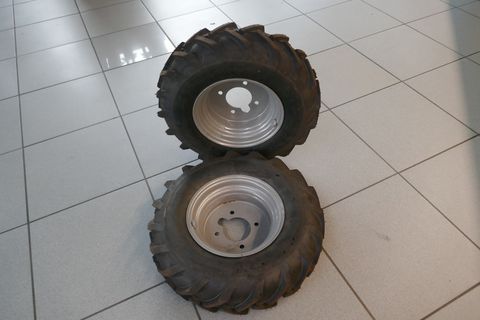
TOP
55 €incl. VAT 20%
2 Stück Kompletträder von Aebi 5.00 - 10, von um Bereifung prompt verfügbar.Für weitere Fragen steht Ihnen unser Ersatzteil-Profi gerne zur Verfügung! Wheels and
Premium Gold dealer
Results

TOP
55 €incl. VAT 20%
2 Stück Kompletträder von Aebi 5.00 - 10, von um Bereifung prompt verfügbar.Für weitere Fragen steht Ihnen unser Ersatzteil-Profi gerne zur Verfügung! Wheels and
Premium Gold dealer
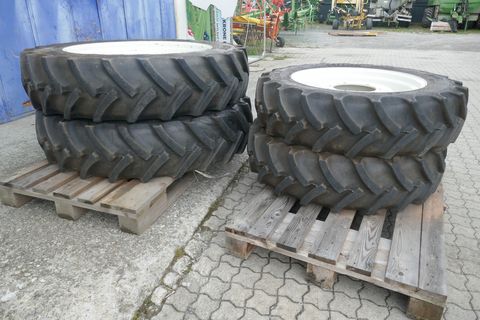
TOP
3.590 €incl. VAT 20%
Pflegebereifung 340/85R38 für hinten und 280/85R28 für vorne, Achse Klasse 1, für New Holland T5. Dual Command oder Steyr Kompakt oder +, 80 - 100 PS, Vorführreifen,
Premium Gold dealer
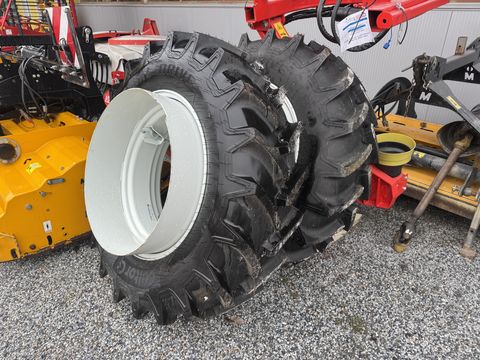
2.850 €incl. VAT/ mediation
Zum Verkauf stehen 2 Trinker Zwillingsreifen mit Verschlüssen• Neuwertig!• 4 mal gebraucht• Verschlüsse inkl.• Reifenmarke: Cultor• Reifen 380/85R30 Wh
Martin Hußler KFZ-Landtechnik
8561 Söding-Sankt Johann

Premium Plus dealer
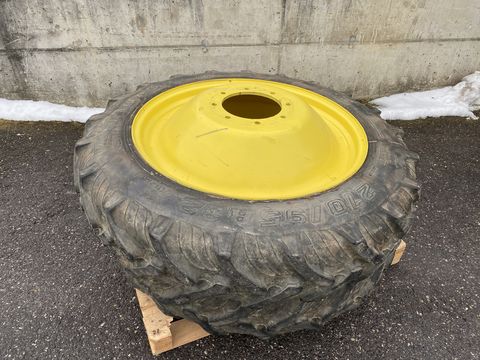
3.900 €VAT not applicable
Spur 2, 10-m - waren auf John Deere 6125 R montiert Wheels and tires Tractor wheels
LH Pregarten-Gallneukirchen, Pregarten
4224 Wartberg

Premium Plus dealer
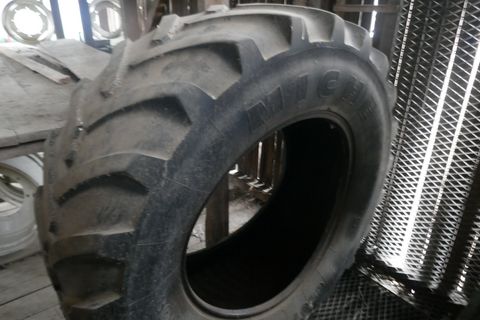
588 €incl. VAT 20%
1 gebrauchter Michelin XM 108 Traktorreifen 650/65R38, mit ca. 40% Profil, sofort abzugeben ab Lager Villach.Für weitere Fragen steht Ihnen unser Ersatzteil-Prof
Premium Gold dealer
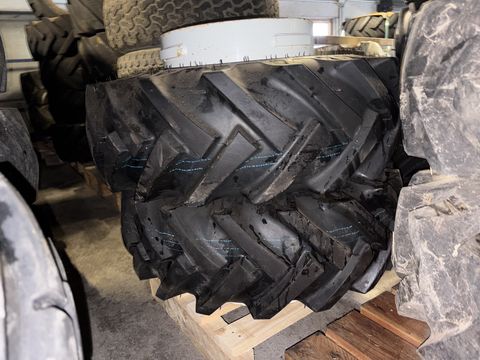
1.390 €incl. VAT 20%
Zwillingsreifen 10/75-15.3AS neuwertig Wheels and tires Other wheels and tires
Premium Gold dealer
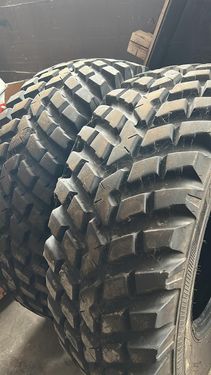
1.500 €VAT not applicable
Wheels and tires Tractor wheels
LH Rohrbach
4150 Rohrbach

Premium Plus dealer
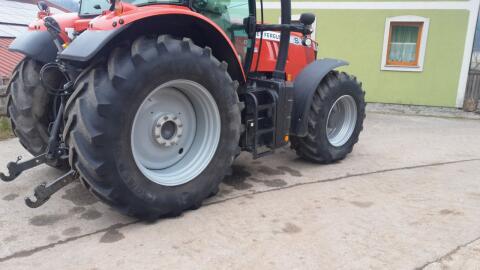
Classified ad
TOP
2.950 €Old Price 3.950 €
Hallo, Michelin Multibib wegen Umbereifung. Hi. 650/65R38, knapp 4 cm Profil. Wheels and tires Tractor wheels
3213 Frankenfels
1 month online
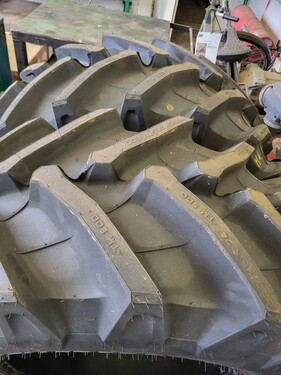
1.950 €incl. VAT/ mediation
PRIVATVERKAUF Wheels and tires Tractor wheels
LH Eferding-OÖ.Mitte, Perg
4320 Perg

Premium Plus dealer
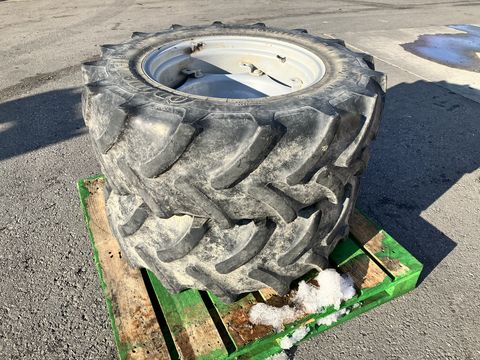
580 €incl. VAT/ mediation
CONTINENTAL Traktorräder+ Continental AC 70+ Dimension 360/70 R24+ von Same Explorer+ Verstellfelgen Wheels and tires Tractor wheels
BULLA Landtechnik GmbH
4595 Waldneukirchen

Premium Plus dealer

120 €incl. VAT 20%
Lagerabverkauf Wheels and tires Tractor wheels
Rettenbacher Landmaschinen
5421 Adnet
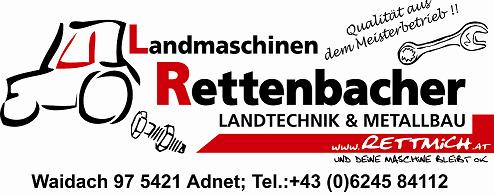
Premium Plus dealer

300 €incl. VAT 20%
Lagerabverkauf Wheels and tires Tractor wheels
Rettenbacher Landmaschinen
5421 Adnet

Premium Plus dealer
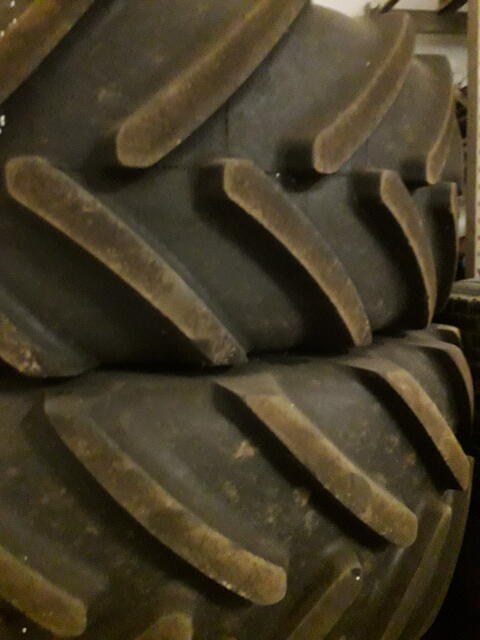
Classified ad
VIP
TOP
4.400 €
Verkaufe Michelin Multibib 650/65-R38 mit Felgen, sind von einem Fendt 516 Vario, Laufleistung ca. 1.500 Bstd. Preis für beide Räder. Wheels and tires Tractor wheels
2020 Hollabrunn
3 days online
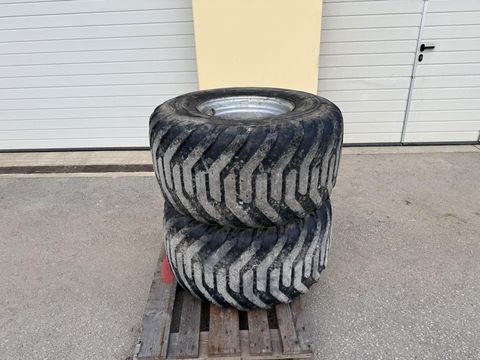
170 €VAT not applicable
++KOLB LANDTECHNIK++ ✅NOKIAN ELS Kompletträder ✅Dimension 500/50-17" ✅8-Loch Felge ✅Einpresstiefe -35✅Ventilschutz ✅Reifen sind dicht ✅sofort ve
KOLB LANDTECHNIK
8250 Vorau

Premium Plus dealer
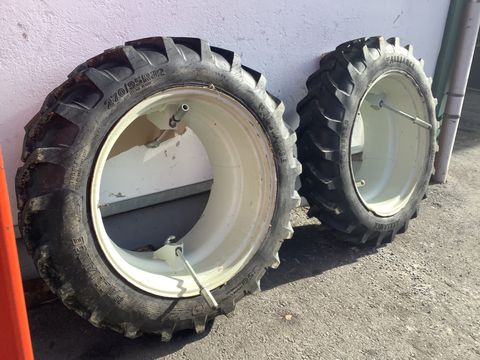
1.750 €incl. VAT/ mediation
Trinker Zwillingsräder 270/95-32 passend zu 420/70-28 (14, 9-28, 380/85-20, 480/65-28), mit Haken- und Ösenschrauben, Standort Westendorf (B) Wheels and tires Tractor
Stöckl Johann Landmaschinen GesmbH & Co KG
6363 Westendorf

Premium Plus dealer
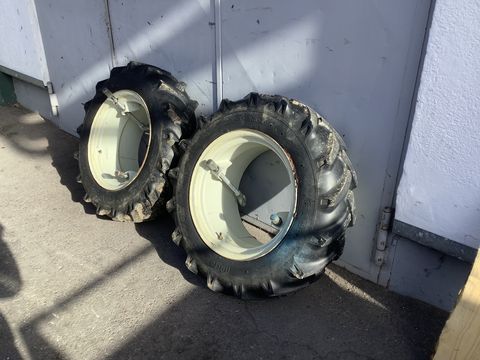
1.080 €incl. VAT/ mediation
Trinker Zwillingsräder 9.5-20 passend zu 320/70-20 (340/65-20, 300/70-20), mit Haken- und Ösenschrauben, Standort Westendorf (B) Wheels and tires Tractor wheels
Stöckl Johann Landmaschinen GesmbH & Co KG
6363 Westendorf

Premium Plus dealer
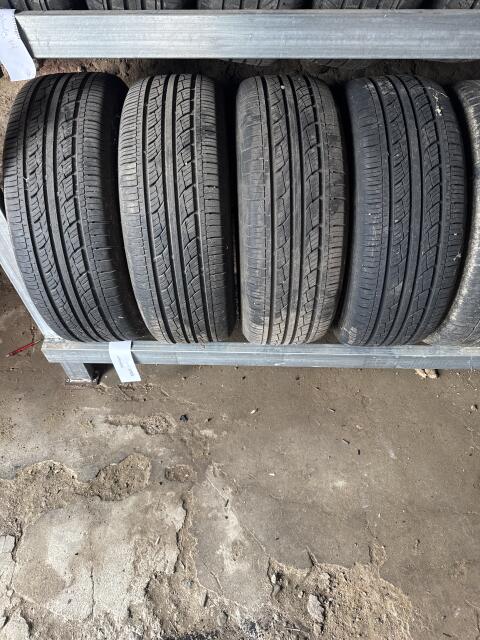
Classified ad
VIP
TOP
Neuwertige 'Nexen' Sommerreifen, 4x inkl. 4 Felgen für Toyota Hilux zu verkaufen wegen Auto-Umstieg. 265/60/R18. Wheels and tires Other wheels and tires
8733 Fentsch
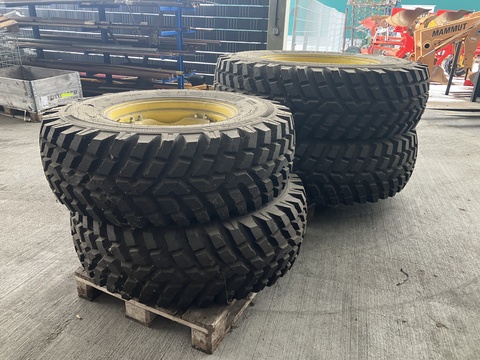
4.490 €incl. VAT 20%
Klassifizierung: Neumaschine; Maschinentyp: Traktor; Reifentyp: Reifen; Hersteller und Baureihe der passenden Maschine: John Deere Serie 5 R; Anbauposition der Räder
Premium Gold dealer
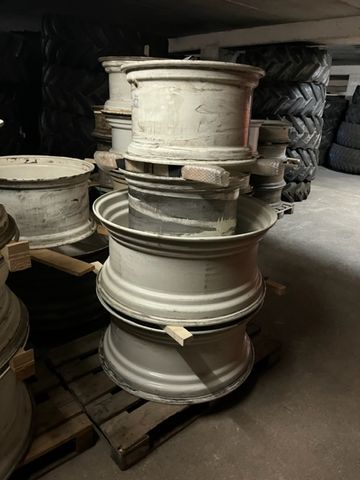
1.650 €incl. VAT 20%
Neuwertiger Felgensatz 540/65-34 zu New Holland T5. Utility Baureihe, mit 1.5 Achsausführung, sofort verfügbar ( B) Wheels and tires Tractor rims
Stöckl Johann Landmaschinen GesmbH & Co KG
6363 Westendorf

Premium Plus dealer
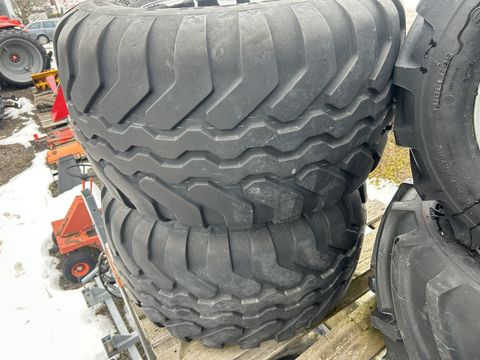
Price on request
leicht gebrauchte Kompletträder 500/50-17 Vredestein Flotation + auf 8-Loch Felge 16.00x17 ET-35 Wheels and tires Wheels set
FRAKAM Landtechnik GmbH
4596 Steinbach / Steyr

Premium Plus dealer
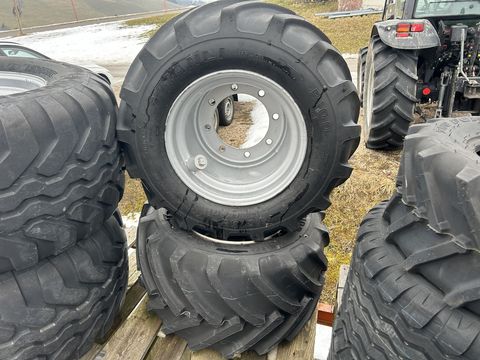
Price on request
Kompletträder Neu 19.0/45-17 Tianli R100 auf 8-Loch Felge 16x17 Wheels and tires Wheels set
FRAKAM Landtechnik GmbH
4596 Steinbach / Steyr

Premium Plus dealer
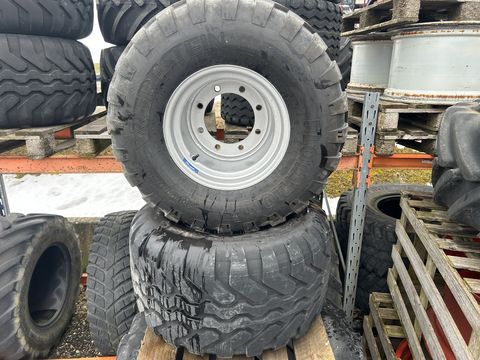
Price on request
Neue Kompletträder 500/50-17 Vredestein Flotation + auf 8-Loch Felge 16.00x17 Wheels and tires Wheels set
FRAKAM Landtechnik GmbH
4596 Steinbach / Steyr

Premium Plus dealer
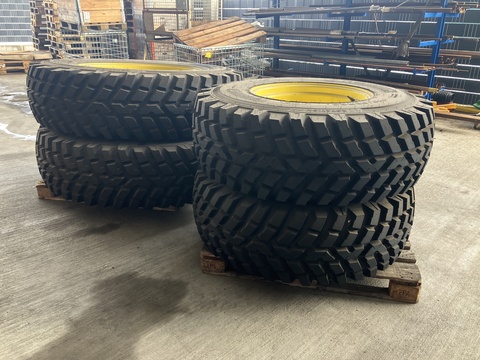
5.990 €incl. VAT 20%
Klassifizierung: Neumaschine; Maschinentyp: Traktor; Reifentyp: Reifen; Hersteller und Baureihe der passenden Maschine: John Deere Serie 6M, 6R; Anbauposition der Rä
Premium Gold dealer
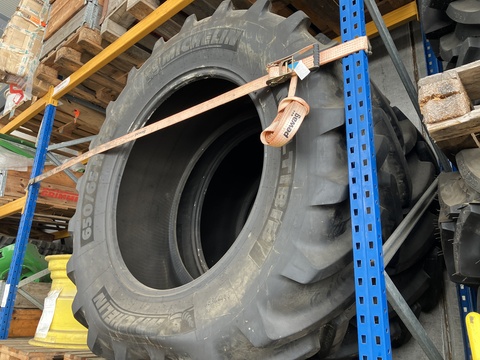
5.900 €incl. VAT 20%
Klassifizierung: Vorführmaschine; Maschinentyp: Traktor; Reifentyp: Reifen; Hersteller und Baureihe der passenden Maschine: Michelin Multibib; Anbauposition der Räde
Premium Gold dealer
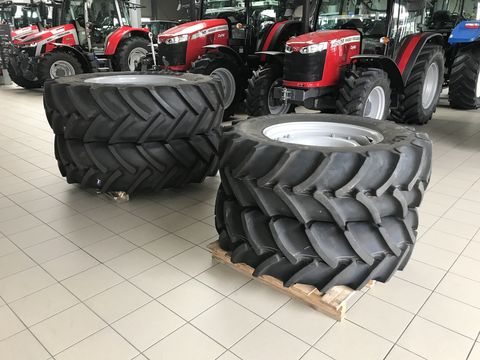
3.000 €incl. VAT 20%
Ausstattung:- mit Felgen- passend zu MF 7S.155- neuDas Gerät ist in Burgkirchen lagernd.Damit ich mir ausreichend Zeit für Sie nehmen kann, bitte ich
Premium Gold dealer
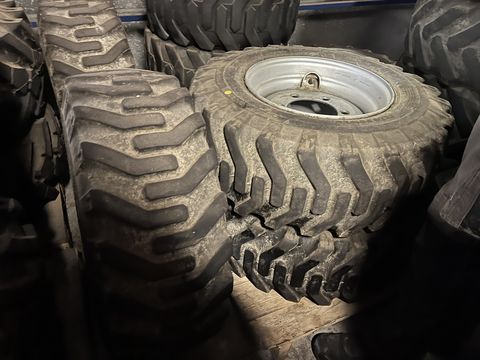
1.290 €incl. VAT 20%
12x16.5EM ET45 6 Loch Wheels and tires Wheels set
Premium Gold dealer
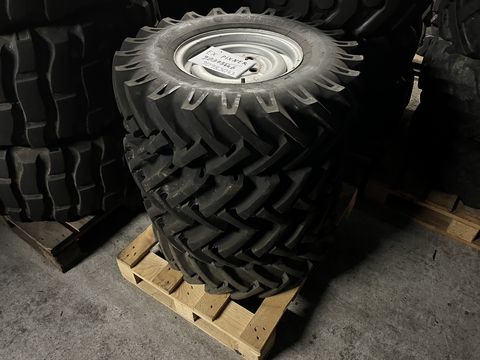
400 €incl. VAT 20%
7.00-12AS 4 Loch 90% Wheels and tires Wheels set
Premium Gold dealer
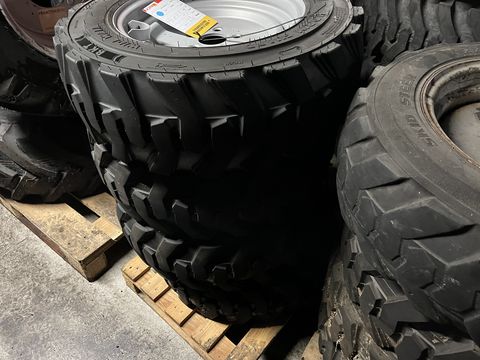
890 €incl. VAT 20%
27x8.50-15EM ET30 5 Loch Wheels and tires Wheels set
Premium Gold dealer
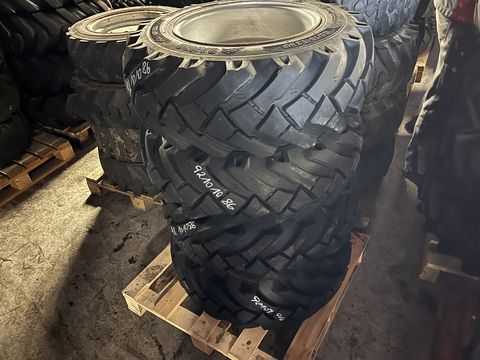
790 €incl. VAT 20%
10/75-15.3AS MPT ET - 40 6 Loch 70% Wheels and tires Wheels set
Premium Gold dealer
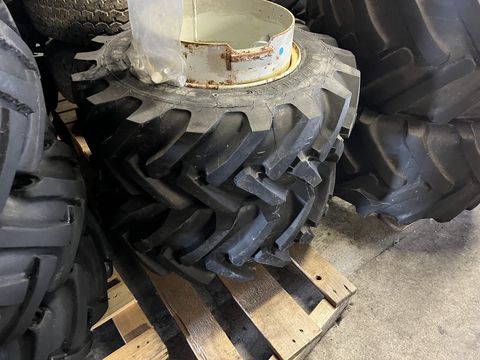
950 €incl. VAT 20%
Zwillingsreifen 10.0/75-15.3AS 5L Wheels and tires Other wheels and tires
Premium Gold dealer
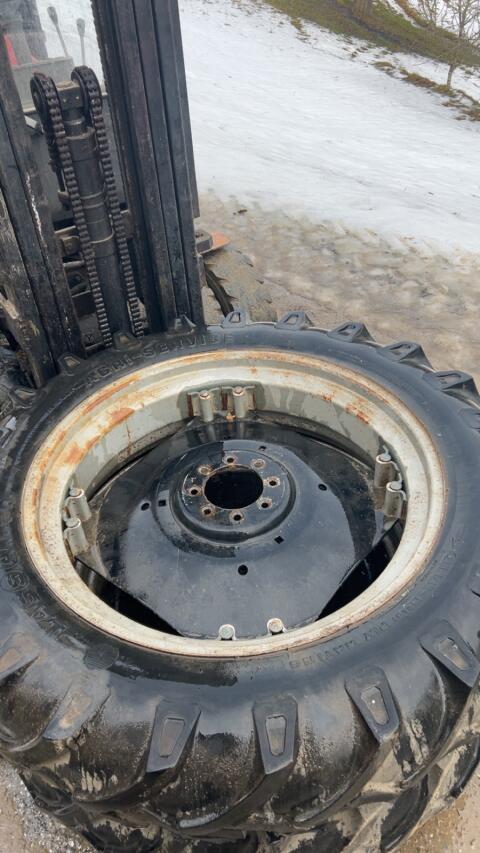
Classified ad
Keine Verwendung mehr. Wheels and tires Other wheels and tires
4363 Pabneukirchen
57 min. online
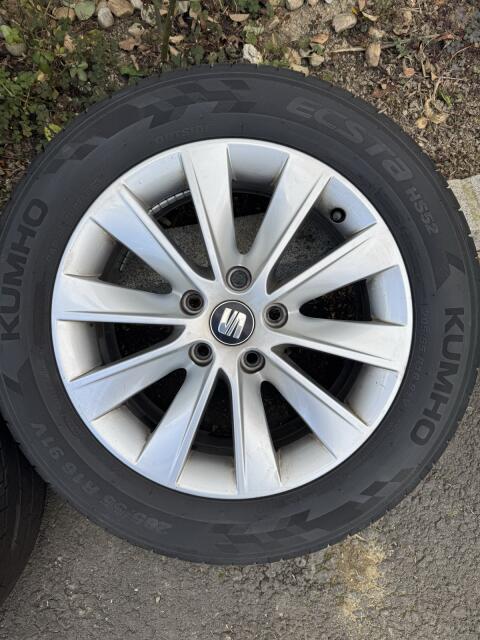
Classified ad
Verkaufe meine alten Sommerreifen, Herstellungsdatum 03/2024, von einem Seat Leon, Bj. 2018, mit gutem Profil, ca. 5-6 mm, mit originalen Seat Felgen, da diese Felge
8493 Klöch
2 hrs online
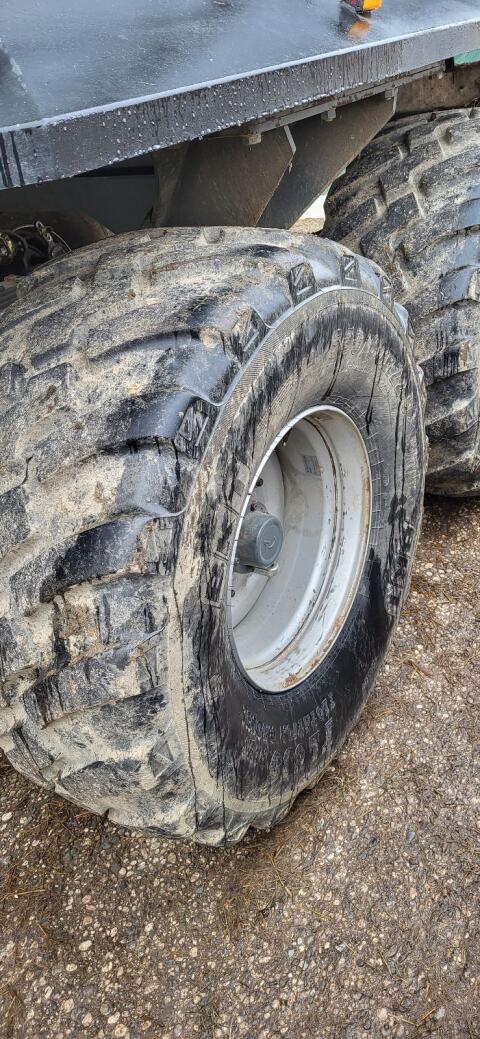
Classified ad
800 €
Verkaufe Zwillingsreifen für 560/60 22, 5 mit Ösen. Wheels and tires Wheels set
4452 Ternberg
4 hrs online
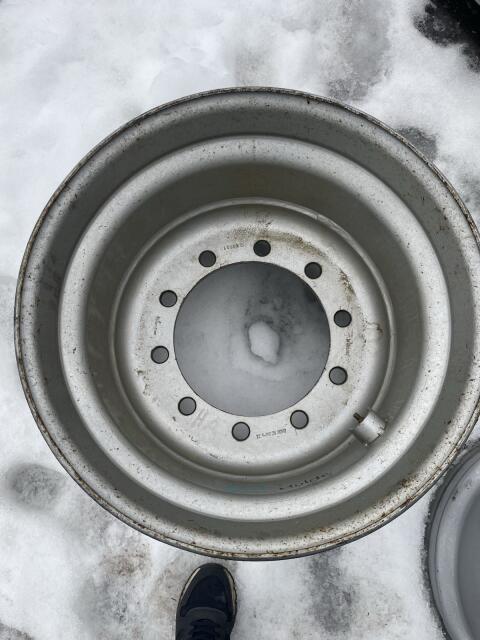
Classified ad
Felgen sind in gutem Zustand. Wheels and tires Other wheels and tires
4563 Micheldorf
4 hrs online
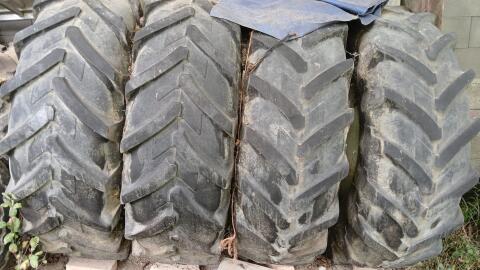
Classified ad
Price on request
4 Stk. Reifen inkl. Felgen 18, 4R34 für MB Trac große Baureihe, auch als Zwillingsreifen geeignet. Wheels and tires Wheels for motor vehicles
7302 Niktisch
5 hrs online
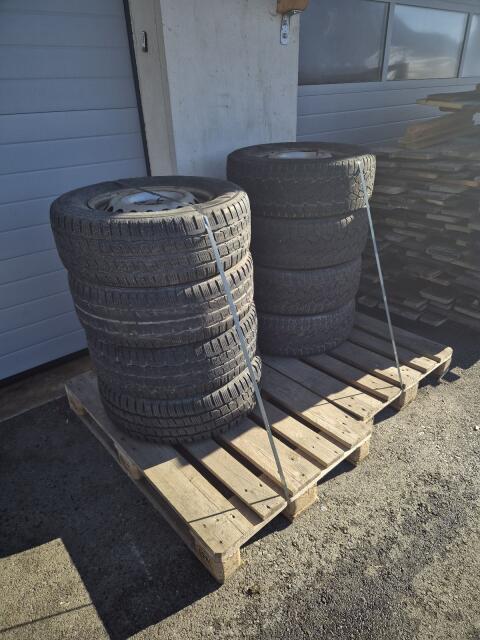
Classified ad
Verkaufe 4 Stk. 265/65R16 C auf Stahlfelgen, 4 Stk. 235/65R16C mit Winterreifen. Wheels and tires Wheels set
6275 Stumm
6 hrs online
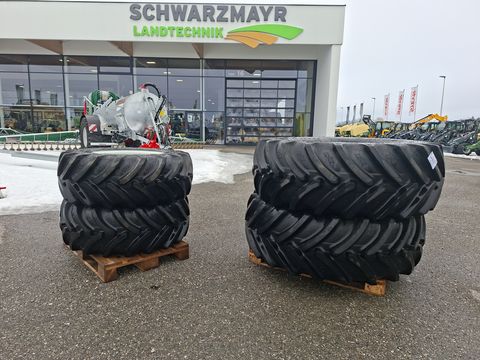
Price on request
Nr. 719481 Garnitur (4 Stk) Kompletträder - 2 Stk. 540/65R34 - 2 Stk. 440/65R24 - Alliance - Fixfelgen - zu Steyr Plus 1.0Anschlußmaße: - Mittenb
Premium Gold dealer
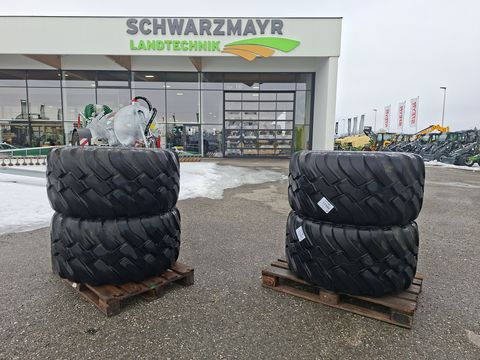
Price on request
Nr. 719431 Stk. Komplettrad 560/45R22, 5 BKT FL 630 Ultra- mit 163A8/152D Tragfähigkeit (4.875kg bei 40km/h)- mit 1.076mm Durchmesser- mit 10-Lochfelge- m
Premium Gold dealer
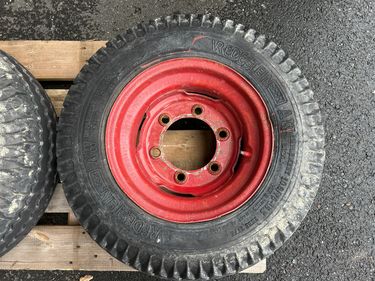
120 €VAT not applicable
gebrauchte Anhängerräder der Marke Vredenstein der Dimension 10.0/75-15.3auf Standardfelgen2 Stück vorhanden, Preis versteht sich pro Stückwaren auf eine
Premium Gold dealer
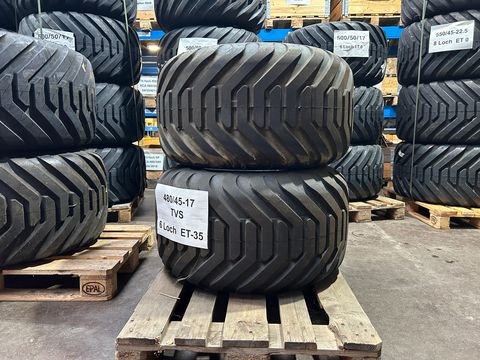
549 €incl. VAT 20%
ganz leicht gebrauchte Anhängerräder der Marke TVS für 480/45-17auf 6-Loch Forstfelgen mit ET-35Diese und weitere sind in Fischbach am LagerIhr SOMA-Verk
Premium Gold dealer
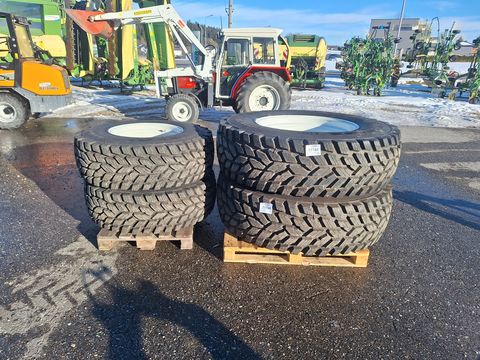
7.500 €incl. VAT 20%
Nr. 71146 zu Steyr Multi und Steyr Expert Serie1 Garnitur Nokian Kommunal - Kompletträder - Hakkapeliitta TRI Winterräder- 400/80R24 144D TL - 480/80R34 15
Premium Gold dealer
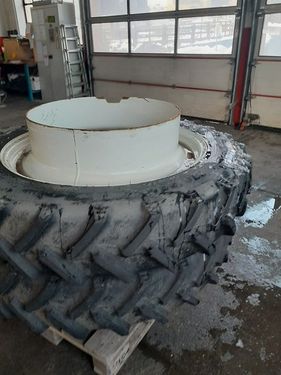
2.400 €incl. VAT 20%
*270/95-R36 zu 540/65-28 BKT Max RT955**neuwertig* Wheels and tires Tractor wheels
Landmaschinentechnik Zameter Petra
9635 Dellach i. Gailtal

Premium Plus dealer
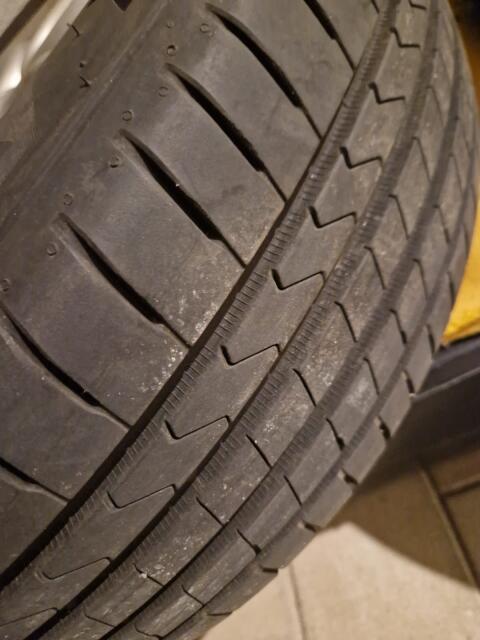
Classified ad
Verkaufe meine erst im April 2025 gekauften Sommerreifen für Mini mit der Dimension 205/60/16. Alufelgen sind ohne Kratzer oder Dellen. Wheels and tires car wheels a
8742 Obdach
17 hrs online
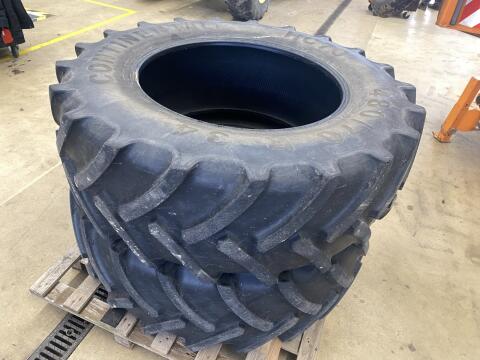
Classified ad
400 €
Gebrauchte Reifen mit ca. 24 mm Profil. Sofort verfügbar. Preis für beide zusammen € 400, -. Standort Wiener Neustadt. Wheels and tires Tractor wheels
7323 Ritzing
17 hrs online
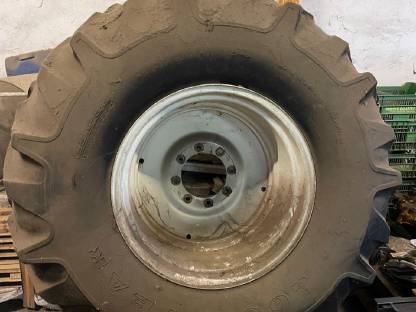
Classified ad
Verkaufe 2 Stk. originale Laverda Reifen, passend für Laverda L624. Passen auch für Claas Mähdrescher. Wheels and tires Tractor wheels
7152 Pamhagen
18 hrs online
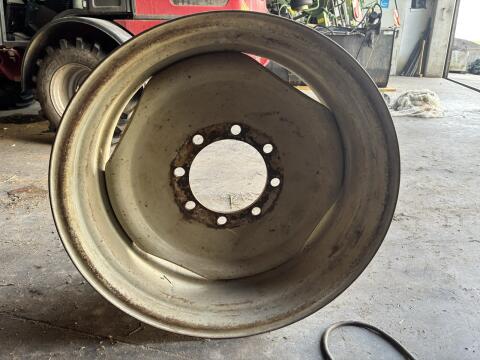
Classified ad
300 €
Verkaufe Felgen 14*30 für Steyr. Wheels and tires Tractor rims
4724 Neukirchen A. Walde
18 hrs online
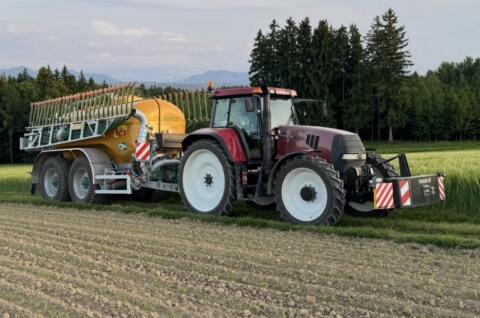
Classified ad
Gebrauchte Pflegereifen 320/90R54 und 320/85R38, Reifen vorne neuwertig. STEYR CVT CASE CVX NEW HOLLAND TVT Tier 1-3. Wheels and tires Wheels set
4652 Steinerkirchen an der Traun
7 days online
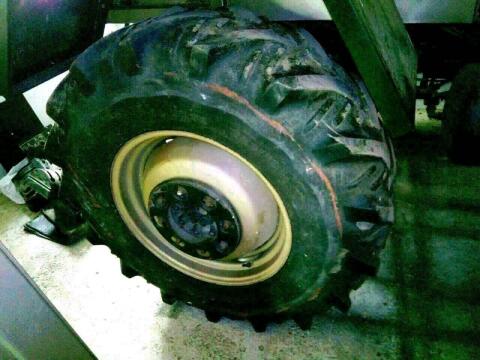
Classified ad
Original 26 Zoll, Mb Trac Felgen, Reifenprofil kaputt, 4 Stk. Felgen, guter Zustand. Bitte melden. Wheels and tires Tractor rims
2852 Hochneukirchen
20 hrs online
Hit 1 - 48 from 3832 (Page 1 from 80)
Tractor wheels and rims are crucial for the performance and efficiency of your machines. In agriculture in particular, choosing the right tires and rims is an important factor in ensuring optimum ground contact and the best possible traction.
Whether you are operating a small farm tractor or a powerful large machine - the right tires make all the difference. Depending on the application, you can choose wheels with particularly good traction on uneven ground or rims for heavy loads. Pay attention to the specific requirements of your machines and choose accordingly.
In modern agriculture, radial tires usually have the upper hand due to their better soil protection, higher traction and fuel efficiency. They are ideal for farms that pay attention to maintaining the soil structure and regularly switch between field and road operation. Diagonal tires, on the other hand, are still used in special applications, especially for heavy loads or on rough terrain, where their robustness and stability are required.
The choice between the two therefore depends heavily on the conditions on site and the specific requirements of the farm.
It doesn't always have to be new. Used tractor wheels and rims offer an affordable way to equip your machines without compromising on quality. Many dealers offer well-maintained and tested tractor wheels and tractor rims that still have many years of use ahead of them. When buying, pay attention to the tire tread, possible cracks or damage. Also check whether the rims are damaged and still promise a long service life. For safety reasons, tire repairs should only be carried out by qualified personnel with suitable tools.